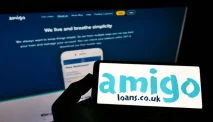Once you accept the loan offer, you’ll have to sign a loan agreement and hand over your car title to the lender. The lender will place a lien on your title, which means they have the right to repossess your car if you default on the loan. You’ll also receive the loan funds, either by check, direct deposit, or cash.
You’ll then have to make monthly payments on the loan, which will include both principal and interest. Some lenders may also charge fees, such as origination fees, late fees, or prepayment penalties. Make sure you read the fine print and understand all the costs and terms of the loan before you sign.
Where can I get an auto equity loan?
There are many lenders that offer auto equity loans, both online and offline.
Some of the online lenders include:
- LendingTree: LendingTree is an online marketplace that connects you with multiple lenders that offer auto equity loans. You can compare offers from different lenders and choose the best one for you. LendingTree also provides helpful resources and tools, such as calculators, articles, and reviews, to help you make informed decisions.
- OneMain Financial: OneMain Financial is an online lender that specializes in personal loans for people with bad or fair credit. You can apply for an auto equity loan online or at one of their branches. OneMain Financial offers loans from $1,500 to $20,000, with interest rates from 18% to 35.99% APR and terms from 24 to 60 months.
- Finova Financial: Finova Financial is an online lender that offers car equity loans, also known as car equity lines of credit (C-LOC). You can borrow up to 50% of your car’s value, with interest rates starting from 17% APR and terms up to 12 months. Finova Financial also claims to have no prepayment penalties, no hidden fees, and no credit checks.
Some of the offline lenders include:
- Credit unions: Credit unions are nonprofit financial institutions that offer various products and services to their members, including auto equity loans. You may be able to get a lower interest rate and more flexible terms from a credit union than from other lenders. However, you’ll have to join a credit union that you’re eligible for, which may have certain requirements, such as your location, occupation, or affiliation.
- Banks: Banks are traditional financial institutions that offer a wide range of products and services, including auto equity loans. You may be able to get a higher loan amount and a longer repayment term from a bank than from other lenders. However, you’ll also have to meet stricter criteria, such as having a good credit score, a steady income, and a low debt-to-income ratio.
- Pawn shops: Pawn shops are businesses that offer short-term loans in exchange for your valuables, such as your car. You can get a loan based on a fraction of your car’s value, usually up to 25%. You’ll also have to pay a high interest rate, typically around 25% per month, and a storage fee. If you fail to repay the loan within the agreed-upon period, usually 30 days, you’ll lose your car.
What are the pros and cons of auto equity loans?
Auto equity loans have some advantages and disadvantages that you should weigh before taking one out. Here are some of them:
Pros
- Easy to qualify: Auto equity loans are easier to qualify for than unsecured loans, since your car acts as collateral. You don’t need to have a good credit score or a high income to get approved. As long as you have enough equity in your car and can afford the payments, you have a good chance of getting a loan.
- Fast and convenient: Auto equity loans are fast and convenient to get, especially if you apply online. You can get an instant decision and receive the funds within the same day or the next business day. You can also keep driving your car while you repay the loan, as long as you don’t default.
- Lower interest rate than other options: Auto equity loans may have a lower interest rate than other options, such as payday loans, title loans, or credit cards. This can help you save money on interest and pay off the loan faster.
Cons
- Risk of losing your car: The biggest drawback of auto equity loans is the risk of losing your car. If you miss a payment or default on the loan, the lender can repossess your car and sell it to recover their money. This can leave you without transportation and make it harder to find another loan or a job.
- High cost and fees: Auto equity loans can be expensive, especially if you have a high interest rate, a long repayment term, or a large loan amount. You may also have to pay fees, such as origination fees, late fees, or prepayment penalties, that can add to the cost of the loan. You may end up paying more than the value of your car or more than you borrowed in the first place.
- Negative impact on your credit: Auto equity loans can have a negative impact on your credit, especially if you miss a payment or default on the loan. The lender will report your payment history to the credit bureaus, which can lower your credit score and affect your ability to get future loans or credit cards.
How to choose the best auto equity loan for you?
If you decide to take out an auto equity loan, you should shop around and compare different offers from different lenders.






